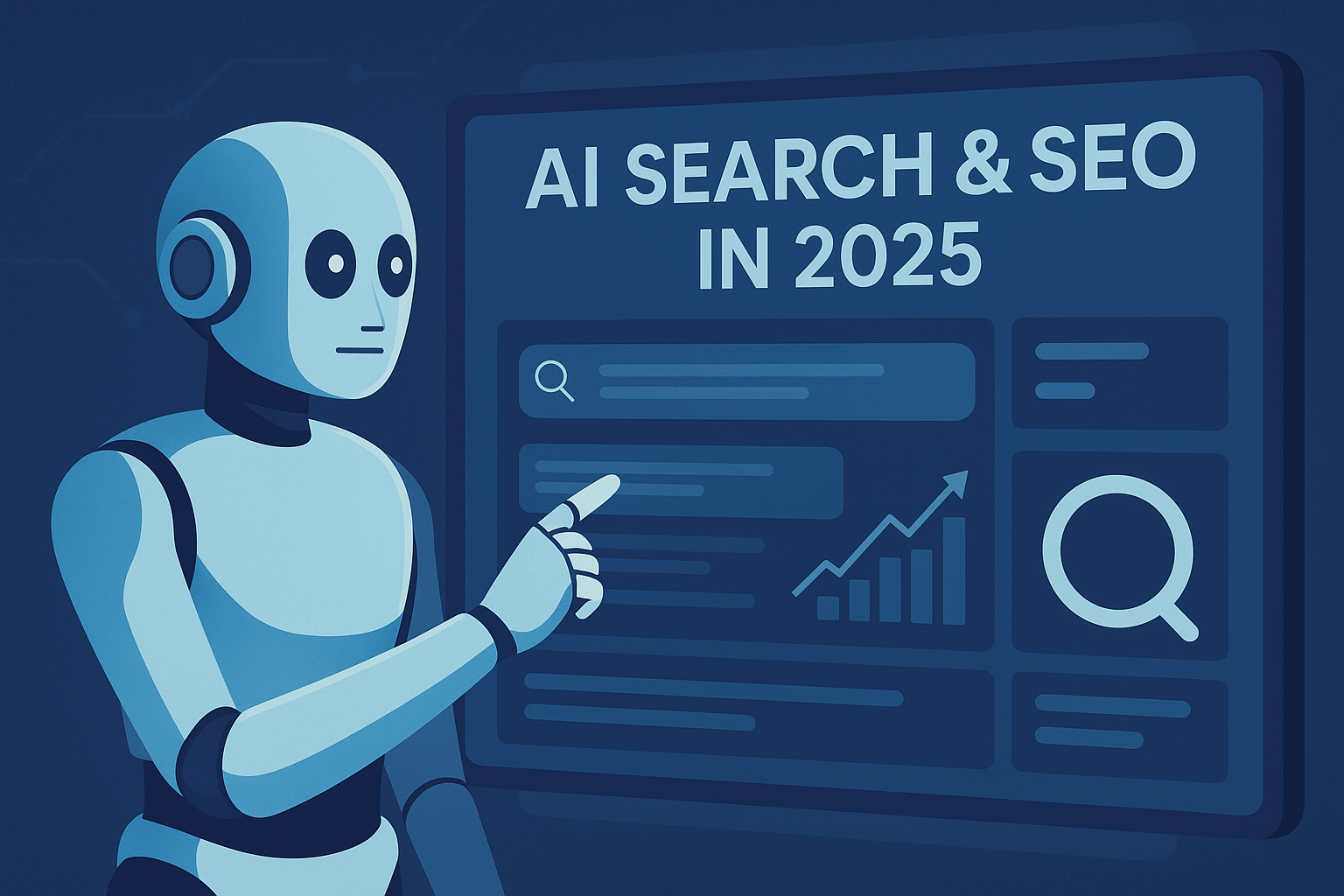The digital landscape is evolving faster than ever, and at the heart of this transformation is AI-powered search. From Google’s Search Generative Experience (SGE) to Bing’s AI Copilot, search engines are no longer just indexing content—they’re understanding context, predicting intent, and generating answers.
So what does this shift mean for your website’s SEO and ranking strategy?
Let’s dive into the impact of AI search and how to future-proof your content for higher visibility.
What is AI-Powered Search?
Traditional search engines ranked pages based on keywords, backlinks, and technical SEO. But AI search goes a step further by:
- Understanding natural language queries
- Providing direct, summarized answers
- Relying more on contextual relevance than exact match keywords
- Using machine learning models like BERT, MUM, and Gemini
AI doesn’t just crawl pages—it interprets user intent and delivers concise, conversational responses that may bypass traditional blue links entirely.
How AI Search is Changing Website Ranking
Here’s how modern AI search is impacting your site:
1. Featured Snippets & Zero-Click Results are Dominating
AI-generated answers often appear above traditional results, reducing click-through rates (CTR). If your content isn’t optimized for snippet-friendly formatting, you’re likely to lose visibility.
Tip: Use clear headers (H2s & H3s), bullet points, FAQs, and concise answers in your posts.
2. Authority and Topical Relevance Are More Important Than Ever
AI search relies on knowledge graphs and trusted sources. Google favors content from authoritative websites that cover topics in-depth and show expertise (E-E-A-T).
Tip: Create cluster content and link related articles to build topical authority.
3. Traditional Keyword Stuffing No Longer Works
Gone are the days of keyword cramming. AI understands semantics and context. This means your content should flow naturally while embedding keywords in meaningful ways.
Tip: Focus on keyword intent (informational, navigational, transactional) rather than just density.
Keywords to Use in 2025’s AI-Driven SEO Landscape
Here are some high-impact keywords and LSI terms that should be naturally integrated into your content:
- AI search engine optimization
- AI and SEO in 2025
- Google SGE SEO strategy
- Future of website ranking
- Search intent optimization
- Zero-click search impact
- Conversational search trends
Human-Centric SEO is the New Standard
Ironically, as search engines become more machine-driven, your content must become more human.
- Write for real people, not algorithms
- Add personal stories, case studies, examples
- Use a conversational tone
- Make content accessible and scannable
Google’s AI now evaluates whether your content is helpful—a key factor in the Helpful Content System.
How to Adapt Your SEO Strategy for AI Search
Here’s a simple action plan:
- Create people-first content with real value
- Focus on semantic SEO and natural language
- Optimize for AI snippets using structured data
- Build your topical authority with internal linking
- Regularly update content to stay relevant
- Use tools like Surfer SEO, Frase, or ChatGPT to analyze content gaps
Final Thoughts: Evolving With the Search Engines
AI is changing the rules of search, but it’s also opening new opportunities.
If you embrace the shift, create quality content, and understand the user’s true intent, your website can thrive in this new landscape.
Stay ahead. Stay human. And let AI enhance your SEO, not replace it.
